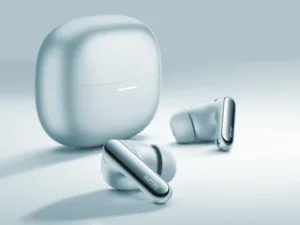So, Apple has just announced the AirPods 4, and there’s a huge buzz around one specific change: the inclusion of USB C. Now, you might be wondering, “Does this small change actually mean anything?” Spoiler alert: It’s always a big thing and not only in the context of Apple lovers alone.
So, let’s take a closer look at why USB-C on AirPods 4 is not just simply a change in the charging port – it means a change in the wireless audio industry as a whole.
Why USB-C? The Facts about the Port Switch
I know what you’re thinking: “Isn’t this just about charging? Does this change really affect my day-to-day use?” Well, on the surface, the move to USB-C may seem like Apple is simply conforming to the EU regulations which required manufacturers to adopt a single charging mechanism for their gadgets.
Yet, the reality is USB-C is so much more than that and it becomes apparent when compared to this technology. It isn’t about a better user experience, or even a better today: this is about investing in a better ‘tomorrow’.
Now, your AirPods 4 can charge on MacBook, iPad or even another brand device due to the universal pixel connector. But here’s the rub, what else can this mean for the audio experience?
Better Audio Quality? Here’s the Twist
You’re probably asking: “Will the use of the USB-C port interfere with the quality of sound played?” And that is a good question as well. To be specific, it isn’t the port that changes the audio directly, but what it enables. Firstly, USB-C is able to provide better lossless audio quality than the usual type C.
Currently Apple’s AirPods lineup isn’t even in the lossless wireless audio game yet but USB-C implies that Apple could be planning to deliver even better audio in the future.
Imagine this: you’re streaming music from Apple Music in Hi-Res Lossless, and instead of letting the sound become compressed in Bluetooth, the AirPods 4 can potentially offer studio-quality audio wirelessly in the long run.
Wireless audio is set to become a lot more interesting in the coming years.
Seamless Ecosystem: How USB-C Transforms Everything
Let’s talk about the elephant in the room: This has always been the Apple ecosystem. I think we all know Apple likes to keep its products very closed off from each other but with USB-C there is a much better integration.
They won’t require different cables for iPhones, iPads, Macs and AirPods. It is just more coherent and just functions as this greater system that makes your life a lot better.
Now, if your mind goes to ‘does this make me invest even more into the Apple ecosystem?’ the response is, well, sort of! Nonetheless, every port is not confined to the Apple environment, and USB-C enables the connection to non-Apple gadgets as well. You know what that means? That’s one heck of a victory for flexibility.
Are the New AirPods 4 Worth it?
So, is the AirPods 4 worth the upgrade? Let’s break it down:
I’ll say yes, if you are within the Apple ecosystem and willing to pay a premium for the convenience and wireless charging, then the AirPods 4 with USB-C makes a lot of sense.
If you are a type of person who is waiting for the next big change, such as the upgrade of audio quality to others such as lossless quality, then this move is something exciting.
However, if you are okay with your current AirPods and do not think that USB-C is necessary—for you—then it would probably be best to wait for Apple to advance wireless audio further—because it is obvious that they are planning for it.




